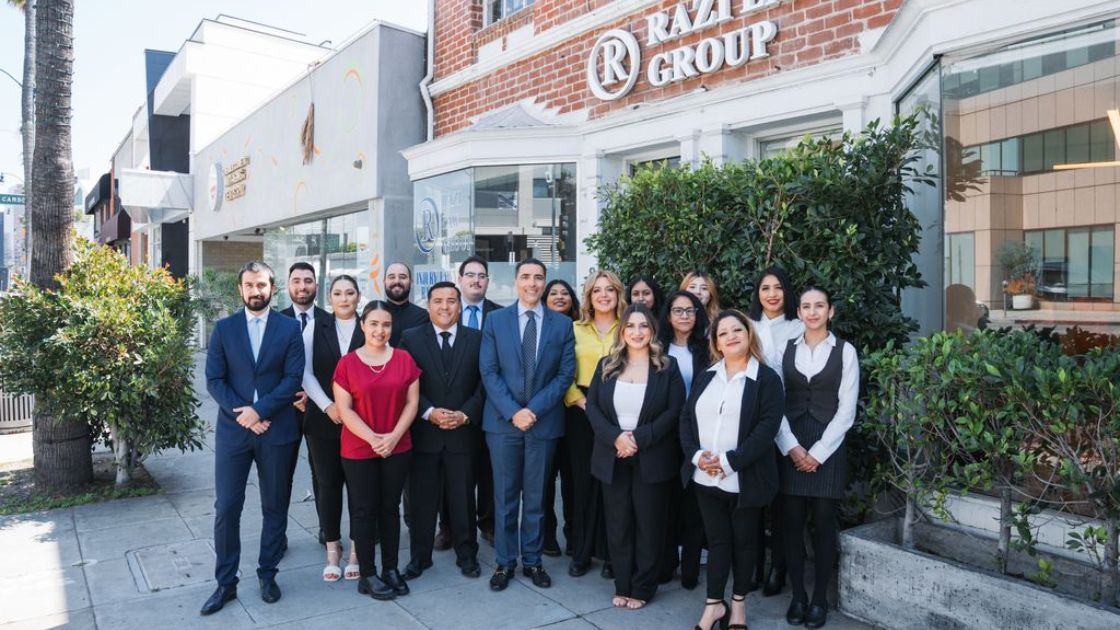Law Government
The Great Divide: Understanding the Argument for and against Gun Control

Guns have become a hotly debated topic, dividing communities and even families. While some believe that stricter gun control laws are necessary to reduce violence and ensure safety, others argue that such measures infringe upon the Second Amendment rights of law-abiding citizens. The issue is complicated, with valid arguments on both sides. In this blog post, we’ll explore the great divide in America’s gun control debate, examining the key arguments for and against it – so you can make an informed decision about where you stand.
What is Gun Control?
In the wake of mass shootings in the United States, the issue of gun control has once again come to the forefront of public debate. Proponents of gun control argue that stricter regulations on firearms would help to reduce the number of deaths and injuries caused by gun violence. opponents of gun control argue that such regulations would infringe on Americans’ right to bear arms, and would be ineffective in reducing gun violence.
The debate over gun control is complicated and often emotional. It raises questions about the role of government in regulating firearms, the relationship between guns and crime, and the meaning of the Second Amendment to the United States Constitution. In order to fully understand the arguments for and against gun control, it is important to consider all sides of the issue.
The History of Gun Control in the United States
The history of gun control in the United States is long and complex. The Second Amendment to the Constitution, which protects the right to bear arms, has been interpreted in different ways over the years.
Early gun control laws in the United States were aimed at preventing violence by Native Americans and outlaws. In the 1800s, these laws began to change, and states started to enact laws that prohibited certain people from owning guns, such as felons and people with mental illness.
The 20th century saw a rise in gun control measures, including the establishment of background checks and waiting periods for gun purchases. These measures were designed to prevent criminals and other dangerous people from obtaining firearms.
In recent years, there has been a push for more restrictive gun control measures, such as bans on assault weapons and high-capacity magazines. Proponents of these measures argue that they will help reduce gun violence in the United States. However, opponents argue that such measures would infringe on the rights of law-abiding citizens without reducing crime.
The debate over gun control is likely to continue for many years to come.
The Different Types of Gun Control Laws
There are a variety of gun control laws that have been enacted in the United States. These laws range from those that simply regulate the purchase and sale of firearms, to those that place restrictions on who can possess them. Some gun control laws are federal in nature, while others are enacted at the state or local level.
The most common type of gun control law is one that regulates the purchase and sale of firearms. These laws typically require background checks for all firearm sales, and may place limits on who can buy certain types of guns. For example, some states may only allow individuals to purchase handguns if they have a clean criminal record. Other states may place age restrictions on firearm purchases, or require that buyers undergo a safety training course before making a purchase.
Another common type of gun control law is one that prohibits certain individuals from possessing firearms. This type of law is often enacted in response to concerns about public safety. For example, many states prohibit convicted felons from owning guns. Some states also place restrictions on individuals who have been involuntarily committed to mental health facilities, or who have been convicted of domestic violence offenses.
Gun control laws vary significantly from one jurisdiction to another. As such, it is important to consult with an attorney in your area to determine what types of gun control measures are in place where you live.
Pros and Cons of Gun Control
When it comes to the debate over gun control, there are a few pros and cons to consider. On the plus side, gun control can help to prevent mass shootings and other violent incidents. It can also make it more difficult for criminals to obtain firearms. On the downside, gun control can be costly and ineffective in some cases. It can also infringe on the rights of law-abiding citizens.
The Mass shootings in the United States
The United States has seen a spate of mass shootings in recent years. In 2016, there were a total of 383 mass shootings, which killed 441 people and wounded 1,438.1 These numbers represent a significant increase from 2015, when there were 274 mass shootings that killed 372 people and wounded 1,870.2
There are many factors that contribute to the increased frequency of mass shootings in the United States. One is the easy availability of guns. There are an estimated 300 million guns in the United States, or nearly one gun for every citizen.3 This abundance of firearms makes it easy for people to obtain guns illegally. Another factor is the mental health of shooters. Many mass shooters have exhibited signs of mental illness prior to their attacks.4
The debate over gun control is further complicated by the Second Amendment to the United States Constitution, which protects the right to bear arms.5 Advocates for gun control argue that the amendment should not be interpreted as an absolute right;6 instead, they believe that it should be subject to reasonable restrictions.7 Those who oppose gun control argue that any restriction on gun ownership is a violation of the Second Amendment.8
The divide between those who support gun control and those who oppose it is unlikely to be resolved anytime soon. However, understanding both sides of the argument is critical to finding a way forward that could help reduce the number of mass shootings in the United States.
How does gun control compare to other countries?
In the wake of mass shootings like the one in Las Vegas, the debate over gun control often turns to comparisons with other countries. How does the United States stack up when it comes to gun laws and gun violence?
The answer is complicated. The U.S. has more guns per capita than any other country in the world, and also has more mass shootings than any other country. But it’s not clear that more guns necessarily lead to more shootings.
Studies have found that countries with stricter gun laws tend to have fewer gun-related deaths, but there are many factors that contribute to gun violence, and it’s hard to say definitively what impact gun control measures would have in the U.S.
What is clear is that the U.S. approach to gun control is very different from most other developed countries. In general, other countries have much stricter laws governing who can buy and possess firearms, and also place greater restrictions on what types of guns are available.
For example, Australia implemented a series of strict gun control measures after a mass shooting in 1996, including a nationwide ban on semiautomatic rifles and shotguns, mandatory buybacks of newly outlawed weapons, and stricter licensing and storage requirements. As a result, gun-related deaths in Australia fell by 59% between 1995 and 2006.
In contrast, the U.S. has largely resisted enacting similar measures, despite repeated mass shootings. There are some federal laws in place, such
Conclusion
Gun control is an issue that has been hotly debated for a long time, and it is unlikely that any definitive conclusion can be achieved any time soon. It is clear, however, that this argument involves deeply held beliefs on both sides of the debate and cannot be ignored. As citizens of the United States we must take ownership of this debate and make sure our voices are heard in order to ensure our safety while also respecting personal rights. We owe it to ourselves to be informed about gun control so that together we can decide what kind of society we want to live in.
Law Government
Parking Lot Hit and Run: What to Do If You’re a Victim?

Introduction
Parking lots are the busiest places with cars moving in and out, and unfortunately, accidents are common here. But when a pedestrian or driver faces a hit-and-run, it’s more complicated, frustrating and stressful. Hit and run is basically when a driver hits you and flees the scene, without taking any responsibility. Whether it’s a minor or serious injury caused by the driver, you may feel helpless and confused about what to do next.
Well, knowing the proper steps to take after an accident is crucial to protect your rights. Knowing what to do can help you protect your rights, assist in insurance claims, and even increase your chances of holding the person at fault accountable. This article will walk you through the steps you should know if you’re a victim of hit and run in a parking lot.
Understanding Parking Lot Hit and Run Accident
Hit and run accidents are quite common, not only in parking lots, but everywhere. Well, these accidents leave you confused, physically injured and emotionally devastated. But what causes these accidents? Well, it can be due to a lot of causes, such as distracted drivers, poor visibility. These accidents are common, but what makes these accidents challenging is the driver who caused the damage and fled the scene.
Steps to Take Right After a Hit and Run in a Parking Lot
1. Prioritize Your Safety
Your safety is over anything! So if you’re hit by a car, move to a safe area where there are no moving vehicles or anything hazardous. And check yourself and your passengers, if they are hurt or injured anywhere. Even if everything seems fine, it is advisable to pay a visit to a doctor. Some injuries might not be immediately visible, so seeking medical attention is crucial.
2. Document the Scene and Damage
If your vehicle was also hit, or if you were struck as a pedestrian, you should gather evidence such as:
- Clear photos and videos of the damage caused to your vehicle. Record the surrounding areas, too, for any debris or paint marks left by the other car.
- Note the exact location, date, and time of the incident.
- Look, if there are any eyewitnesses who might have seen the scene or the fleeing vehicle. Ask for their contact number to get in touch with them.
- Moreover, check out the surveillance cameras in the parking lot to get a recording of the accident.
3. Report the Incident
Reporting the incident is a crucial step after a hit-and-run in a parking lot. Call the police, file a report that creates the official date of the accident. Now, you might be wondering why this is important. Well, this is often required by the insurance companies to identify the responsible driver. When filing a complaint, provide all the evidence you have collected, such as videos, photos, and witness statements.
4. Notify Your Insurance Company
Get in touch with your insurance provider to report the hit and run accident. Provide them with your police report number and all the documents you’ve gathered. Depending on your policy, the insurer may cover the damages under collision motorist coverage. This step is essential in order to begin your claims process and even get compensation for repairs and medical bills.
Additional Tips for Handling a Hit and Run Parking Lot Incident
1. Stay Calm and Avoid Confrontation
If you ever witness a hit and run accident, or you are involved in one, you may feel frustrated, angry and upset, but make sure you never chase or confront a fleeing driver. This attempt can be dangerous, and prioritizing your safety is crucial. Instead, you should focus on gathering information, evidence and then report the incident to the authorities.
2. Check for Injuries and Seek Medical Attention
If you were physically hit or injured in hit and run, you should seek medical help as soon as possible. Even if the injuries feel minor, you should reach out to a doctor to ensure you’re in good health. Moreover, some injuries don’t show up immediately.
3. Preserve All Evidence and Records
When you have various pieces of evidence, you should always keep copies of them. Keep all documents related to the incident such as police report, insurance correspondence, medical bills, and repair estimates. This evidence and records are essential to take further legal steps.
Legal Options and Seeking Professional Help
Navigating hit and run accidents is often complex, especially when the driver remains unidentified. But consulting a hit and run lawyer is essential to understand your rights and options. An attorney can help you with:
- Investigating the incident and working with law enforcement to track down the responsible driver.
- Navigating insurance claims and ensuring you receive fair compensation.
- Representing you in court if necessary to recover damages for injuries, vehicle repairs, or emotional distress.
Preventive Measures to Protect Yourself in Parking Lots
You can’t control how others drive, but you can take some precautions to reduce the risk of hit and run in a parking lot.
- Park in well-lit, busy areas where surveillance cameras are there to capture in case anything happens.
- Always lock your vehicle and be aware of your surroundings when entering or leaving your car.
- If possible, take photos of your parked car before leaving it in unfamiliar or high-risk areas.
- Report any suspicious behaviour or reckless driving in parking lots to property management or security.
In a Nutshell!
Being a victim of hit-and-run in a parking lot is stressful and unsettling, but when you’re aware about what you can do in these situations, you can protect your rights and recover the losses. But make sure you’re prioritizing your safety always. Document everything, report to the police, and notify your insurance company to make sure your rights are protected. And, if the responsible driver can be identified, nothing better than that. Legal professionals can help you explore your options for compensation. Just follow the steps promptly and navigate the aftermath.
Law Government
Johnson Vorhees Martucci: Trusted Birth Injury Lawyer in Joplin

Introduction
Welcoming a child into the world should be one of the most joyous and memorable moments of a parent’s life. The anticipation, excitement, and love surrounding the birth of a baby are unlike anything else. Unfortunately, for some families, this special time turns tragic due to preventable medical mistakes. A birth injury can leave lasting physical, emotional, and financial challenges. At Johnson Vorhees Martucci (JVM), we understand the pain families endure when a trusted medical professional fails to provide safe care. Our mission is to stand beside you, advocate for justice, and secure the resources your child needs for a better future.
What Are Birth Injuries?
Birth injuries occur when an infant is harmed before, during, or immediately after delivery due to complications or medical negligence. While some injuries may be minor and resolve quickly, others cause lifelong disabilities that require ongoing treatment. Common types of birth injuries include:
- Cerebral Palsy: Caused by brain damage due to oxygen deprivation, leading to impaired movement and muscle control.
- Brachial Plexus Injuries: Nerve damage that affects the arms and shoulders, often resulting in weakness or paralysis.
- Fractures and Broken Bones: Sometimes caused by the improper use of delivery tools.
- Brain Damage: Often linked to prolonged labor, delayed C-sections, or failure to monitor fetal distress.
- Developmental Delays: Resulting from untreated complications during delivery.
Not every complication is preventable, but many occur because medical providers fail to act with appropriate skill and care. When mistakes such as delayed diagnoses, improper use of medical equipment, or failure to monitor vital signs happen, families deserve answers and accountability.
How Birth Injuries Affect Families
The impact of a birth injury reaches far beyond the delivery room. Parents often face overwhelming medical expenses for surgeries, therapies, and specialized care. Depending on the severity, children may require adaptive equipment, lifelong medication, or even in-home nursing support.
Beyond financial stress, families endure emotional struggles—fear for their child’s future, frustration with unanswered questions, and the grief of lost expectations. Siblings and extended family members are also affected as daily life changes dramatically. Seeking justice through legal action is not just about compensation—it is about giving families hope, security, and a voice in holding negligent parties accountable.
The Role of an Experienced Attorney
Navigating a birth injury case requires legal and medical knowledge, detailed investigation, and relentless advocacy. These cases are complex because hospitals and insurance companies often work hard to deny responsibility. That is why choosing the right attorney is critical.
A skilled lawyer will:
- Collect and analyze medical records to identify errors.
- Work with medical experts to establish negligence.
- Calculate current and future financial needs, including therapies, special education, and lost earning capacity.
- Handle negotiations with insurance companies determined to minimize payouts.
- Represent families in court, if necessary, to fight for full justice.
Parents should never have to go through this process alone. An attorney ensures the truth comes to light and that families have the support they need during one of the most difficult times of their lives.
Why Choose Johnson Vorhees Martucci
At Johnson Vorhees Martucci, we have built our reputation on compassion, dedication, and proven results. Our attorneys have decades of combined experience representing families in medical malpractice and personal injury cases. We know how devastating birth injuries can be, and we are committed to fighting tirelessly for the compensation your family deserves.
What sets us apart?
- Experience: We have handled numerous birth injury claims, securing justice for families against hospitals and medical providers.
- Resources: Our firm works with leading medical experts to investigate cases thoroughly.
- Compassion: We treat every family with respect, dignity, and care, knowing the challenges you face.
- Results: We have achieved significant verdicts and settlements, ensuring children have access to lifelong care and resources.
When you partner with JVM, you are not just hiring attorneys—you are gaining a team dedicated to standing with you at every step of the journey.
Taking the First Step Toward Justice
If you believe your child’s birth injury was preventable, time is of the essence. Medical malpractice claims must be filed within specific time limits known as statutes of limitation. Acting quickly allows evidence to be preserved, medical experts to review the case, and legal strategies to be built effectively.
At Johnson Vorhees Martucci, we make this first step as simple as possible. We offer free consultations where families can share their story, ask questions, and learn about their options. There is no obligation, and our attorneys will provide clear, honest guidance about your case.
Equally important, we operate on a contingency fee basis. This means you pay nothing upfront and no attorney fees unless we win compensation for your family. Our focus is on relieving your burden so you can prioritize your child’s care.
Empowering Families Through Justice
A birth injury changes lives, but it should not define your child’s future. With strong legal representation, you can secure the resources necessary to provide therapy, education, and opportunities for growth. You can also ensure that negligent medical providers are held accountable, preventing future harm to other families.
At Johnson Vorhees Martucci, we believe every child deserves the chance to thrive. We are here to fight for justice, provide peace of mind, and support families in rebuilding their lives after tragedy.
If you are searching for a trusted birth injury lawyer joplin, know that Johnson Vorhees Martucci is ready to stand with you. Our team has the experience, compassion, and determination to protect your rights and secure a brighter future for your child.
Law Government
Wrongful Death Claims in California: A Guide for Grieving Families

Introduction
“This guide covers California wrongful death claims, including who can file one, what damages can be claimed, time limits, and how a dedicated Los Angeles injury attorney can help.”
We at Razi Law Group know how hard it is to lose someone you love. When someone else is careless or does something wrong that causes the loss anger and confusion usually make the grieving worse. Families need someone who cares is clear and fights for them during these tough times. As experienced abogados de lesiones personales los angeles, we are here to help you with the legal procedure with care and support so you can focus on getting better.
What Constitutes a Wrongful Death Claim in California?

Image by: Yandex.com
In California a wrongful death is caused by someone else’s wrongful act or neglect. This means that if someone had a personal injury claim before they died, their family can now file a claim on their behalf. Car accidents medical negligence industrial accidents or faulty products are some of the most common reasons for these kinds of claims. The main question is whether the other person’s lack of reasonable care caused your family’s terrible death.
Who Is Eligible to file a Wrongful Death lawsuit?
The law is specific about who can bring a claim and typically the immediate family is eligible. This includes the surviving spouse, domestic partner, and children. If there is no immediate family, anyone who would be entitled to the person’s property under California’s inheritance laws may bring the action, such as parents or siblings. A skilled personal injury attorney Los Angeles California can help determine your specific standing to file a claim.
California law says which family members can file a wrongful death claim. Usually the right goes to the immediate family which includes the surviving husband or domestic partner and children. If there are no immediate survivors the right may go to parents siblings or other people who would get it under state law. It might be hard to figure out exactly who is eligible so it is important to talk to an experienced personal injury lawyer to grasp your family legal situation and rights at this tough time.
What Types of Damages Can Be Recovered?
A wrongful death claim asks for financial assistance or damages to make up for the losses your family has suffered. Even while no amount of money can bring back your loved one, it can help you get back on your feet financially. Recoverable damages often include:
- Funeral and burial expenses.
- The financial support the deceased would have contributed.
- The loss of gifts or benefits expected from the loved one.
- The value of the household services the deceased provided.
- The loss of love, companionship comfort or care and guidance.
What Is the Statute of Limitations?
Time is really important. The wrongful death case in California usually has to be filed within two years of the person’s death. If you miss this severe deadline, your family may never be able to get justice and money. As soon as you can, you should talk to a personal injury attorney LA to make sure you meet all the necessary deadlines and keep all the evidence.
You only have a short amount of time to file a wrongful death case in California. The statute of limitations says that this law usually lasts for two years after the death of a loved one. This deadline is set in stone. If you miss this window your family may lose the ability to seek justice and compensation through the civil court system for good. To preserve your claim and make sure all legal deadlines are met you need to talk to a knowledgeable lawyer very soon.
How Can a Los Angeles Injury Lawyer Help Your Family?

Image by: Yandex.com
The judicial system is hard to understand, especially when you’re sad. An experienced injury lawyer in Los Angeles will take care of every part of your case. This means doing a full investigation, collecting proof, talking to pushy insurance companies, and, if necessary, going to court. Your lawyer is like a shield for you, taking care of all the legal issues so you can spend time with your family. Read our article on Why Experience Matters: Choosing the Right LA Injury Lawyer to learn more about how to choose a dedicated advocate.
Conclusion
No family should have to deal with a wrongful death claim on their own. You can hold people accountable and get the help you need to move on all while honoring your loved one memory through justice.
Losing a loved one in an unexpected way is painful and life-changing. For families in California, a wrongful death claim can be a way to seek justice and secure financial support. This legal process helps hold responsible parties accountable and can ease the burdens that come with such a loss.
If you believe your family may have a wrongful death claim, it’s important to act quickly and consult an experienced attorney. Understanding your rights and options will guide you through the process during this difficult time.
Remember, wrongful death claims not only provide compensation but also honor the memory of your loved one by ensuring their loss leads to justice and safer futures.
-
Business2 years ago
Cybersecurity Consulting Company SequelNet Provides Critical IT Support Services to Medical Billing Firm, Medical Optimum
-
Business2 years ago
Team Communication Software Transforms Operations at Finance Innovate
-
Business3 years ago
Project Management Tool Transforms Long Island Business
-
Business2 years ago
How Alleviate Poverty Utilized IPPBX’s All-in-One Solution to Transform Lives in New York City
-
health3 years ago
Breast Cancer: The Imperative Role of Mammograms in Screening and Early Detection
-
Sports3 years ago
Unstoppable Collaboration: D.C.’s Citi Open and Silicon Valley Classic Unite to Propel Women’s Tennis to New Heights
-
Art /Entertainment3 years ago
Embracing Renewal: Sizdabedar Celebrations Unite Iranians in New York’s Eisenhower Park
-
Finance3 years ago
The Benefits of Starting a Side Hustle for Financial Freedom






























